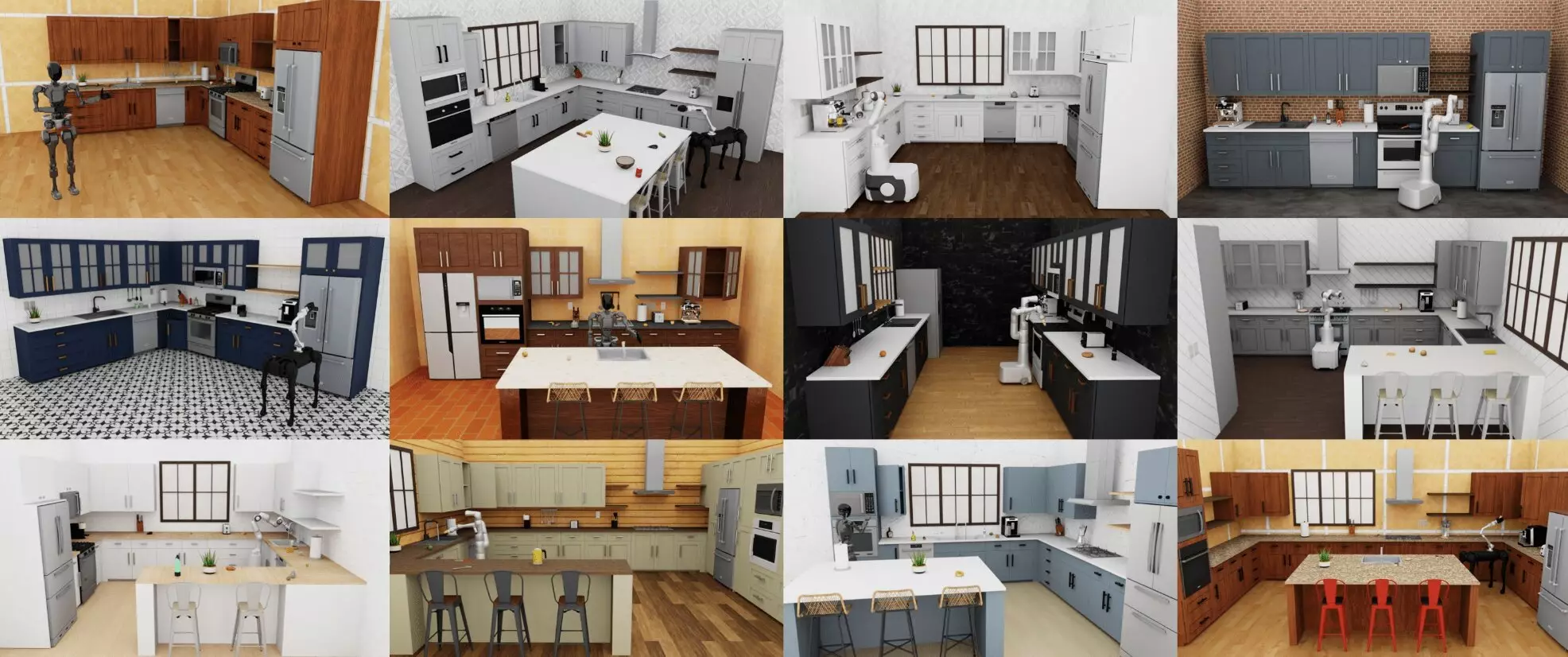Artificial intelligence (AI) tools have made significant advancements in recent years, particularly in natural language processing (NLP) and computer vision algorithms. The key driving force behind this progress is the exponential growth of datasets used to train these algorithms. However, when it comes to training data for robot control and planning algorithms, the scenario is quite different. Acquiring such data is not as straightforward compared to gathering image and text data from the internet.
A recent paper pre-published on the server arXiv and set to be presented at the Robotics: Science and Systems 2024 conference introduces a groundbreaking platform called RoboCasa. Developed by researchers at the University of Texas at Austin and NVIDIA Research, RoboCasa is a large-scale simulation framework designed to train generalist robots to perform a variety of tasks in everyday settings. Lead author of the paper, Yuke Zhu, highlighted the significance of RoboCasa by stating, “Recent progress in AI has been largely propelled by training large models on massive data sources. Inspired by these advancements, we seek to develop foundation models for generally capable robots that can perform various everyday tasks.”
The primary goal of the researchers was to create an open-source simulation platform that would facilitate the training of robotics algorithms. This led to the birth of RoboCasa, an extension of the earlier RoboSuite framework introduced by the team. By leveraging generative AI tools, the researchers created diverse object assets, scenes, and tasks to enhance the realism and diversity of the simulated world. RoboCasa boasts thousands of 3D scenes, 150 different types of objects, and numerous furniture items and appliances. It also includes 100 tasks, human demonstrations, and effective trajectories to enable robots to complete these tasks efficiently.
Zhu expressed excitement over two key findings from their work on RoboCasa. Firstly, they observed a scaling trend where increasing the size of the training datasets improved the model’s performance steadily. Secondly, combining simulation data with real-world data resulted in enhanced performance in real-world tasks. Initial experiments with the platform showed promising results in generating synthetic training data for training imitation learning algorithms.
The study demonstrates the effectiveness of simulation data in training AI models for robotics applications. RoboCasa, being an open-source platform, is readily accessible on GitHub for other teams to experiment with. Moving forward, Zhu and his colleagues plan to enhance the platform further by incorporating advanced generative AI methods to capture the variety and richness of human-centered environments across different settings like homes, factories, and offices.
The introduction of RoboCasa marks a significant milestone in the evolution of artificial intelligence in the field of robotics. The platform’s capabilities to generate high-quality simulation data for training robotics algorithms pave the way for more advanced and capable robots in the future. As researchers continue to push the boundaries of AI technology, platforms like RoboCasa will play a crucial role in shaping the future of robotics.


Leave a Reply